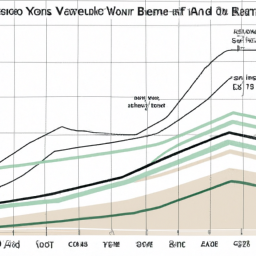Bonds are a type of loan from an investor to a company or government. The investor provides the borrower with a certain amount of money, and in return, the borrower pays interest on the loan. The bond's value may also fluctuate over time, depending on various factors.
Fixed-income securities are investments that provide a steady interest income stream for a specific period. These securities can be issued by corporations, governments, or other entities.
Investors often turn to bonds and fixed-income securities for a variety of reasons. These investments typically offer lower risk than stocks and can provide a reliable income stream over time. In addition, bonds and fixed-income securities can be a good way to diversify a portfolio.
There are several types of bonds, each with its own characteristics and risk. For example, government bonds, also known as treasury bonds, are issued by the federal government and are considered one of the safest types of bonds. However, they typically offer lower returns than other types of bonds.
Corporate bonds, on the other hand, are issued by companies and can offer higher returns than government bonds. However, they also come with more risk, as the financial health of the issuing company can impact the value of the bond.
Municipal bonds are issued by state and local governments and can be a good way to invest in local infrastructure projects. However, they can also be more complex than other types of bonds and may require more research to understand.
Investors should also be aware of the creditworthiness of the bond issuer. Bonds issued by companies or governments with lower credit ratings may offer higher returns but also come with a higher risk of default.
In recent news, investors representing over $5 billion in Credit Suisse bonds have sued the Swiss regulator after their investments were impacted by the bank's recent scandals. This highlights the importance of understanding the risk associated with investing in bonds and conducting thorough research before making any investment decisions.
Environmental, social, and governance (ESG) factors are also becoming increasingly important in the bond market. In a recent episode of The Bond Buyer podcast, Neal Pandozzi discussed the impact of ESG on public finance and how investors can incorporate these factors into their investment decisions.
In addition to understanding the risk and factors that impact bond investments, investors should also be aware of the different types of fixed-income securities. These can include bonds, as well as other investments such as certificates of deposit (CDs) and money market funds.
The recent failures of Signature Bank and SVB Financial's Silicon Valley Bank have highlighted the importance of monitoring the financial health of banks and other financial institutions. The Federal Reserve's introduction of a Bank Term Liquidity Facility has provided some relief to these institutions, but investors should still be cautious when investing in fixed-income securities issued by banks and other financial institutions.
In conclusion, bonds and fixed-income securities can be a valuable addition to an investor's portfolio. However, it is important to understand the risk and factors that impact these investments and conduct thorough research before making any investment decisions. Share this list for Financial Literacy Month, or use it as a reference point for your own investing research.
